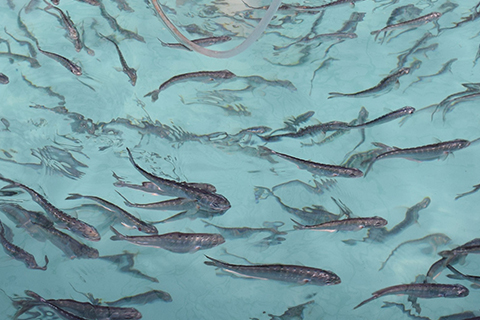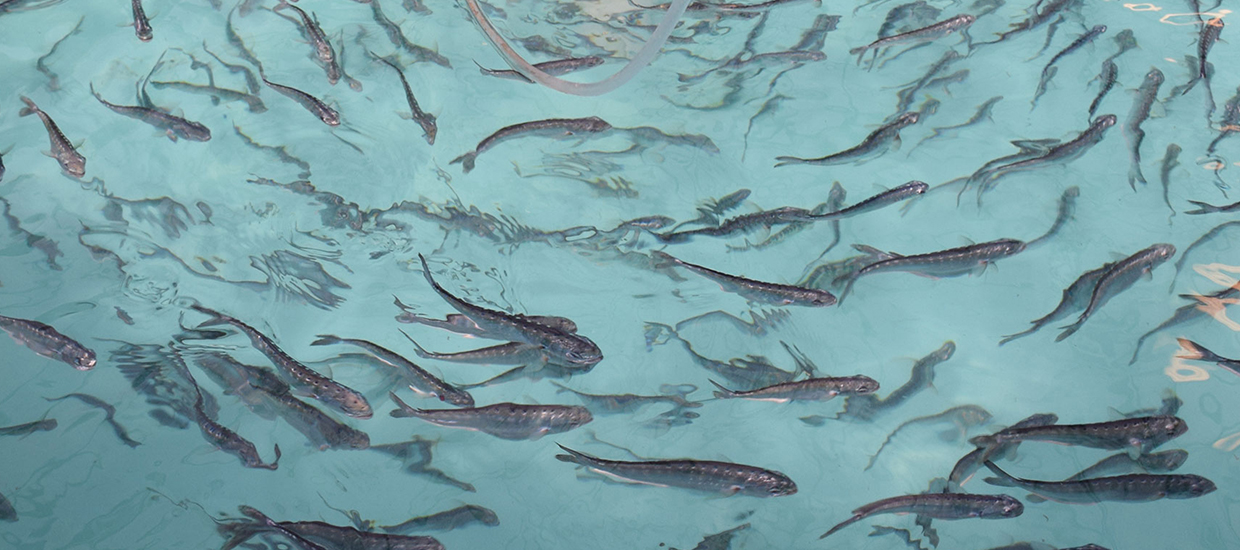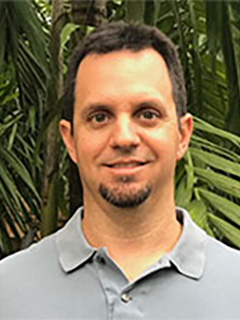Aquaculture provides over 50% of the seafood for human consumption. As the fastest growing sector of food production, growing at a rate of ~10% annually, it has reshaped the fishery industry and fisheries management strategies worldwide. The Professional Masters Program in Aquaculture focuses on the environmental, technological, social, economic, legal, and political aspects of sustainable aquaculture. The program covers all stages of planning and development, from site and species selection to feasibility studies, resource evaluation, hatchery and grow-out technology, and commercialization. Emphasis is placed on the environmental sustainability of commercially important marine fish species, as well as shrimp and mollusks.
The program combines extensive laboratory courses with substantial hands-on experiences at the University of Miami Experimental Hatchery (UMEH), working with broodstock, spawning, larval rearing, live feed production, nurseries, and shipping/transport. Furthermore, students participate in a field course (MES 619: Aquaculture III) organized in collaboration with the Inter-American Tropical Tuna Commission (IATTC) and conducted simultaneously with the Annual Workshop on the “Physiology and Aquaculture of Pelagics with Emphasis on Reproduction and Early Developmental Stages of Yellowfin Tuna”. This 2-week, intensive field course takes place at the world renowned Achotines Laboratory in Provincia de Los Santos, on the Pacific coast of the Republic of Panama.
Aquaculture (AQU)
The MPS in Aquaculture focuses on the environmental, technological, social, economic, legal, and political aspects of sustainable aquaculture. The program covers all stages of planning and development, from site and species selection to feasibility studies, resource evaluation, hatchery and grow-out technology, and commercialization. Please see our departmental website for more information about this program.
Program Requirements






